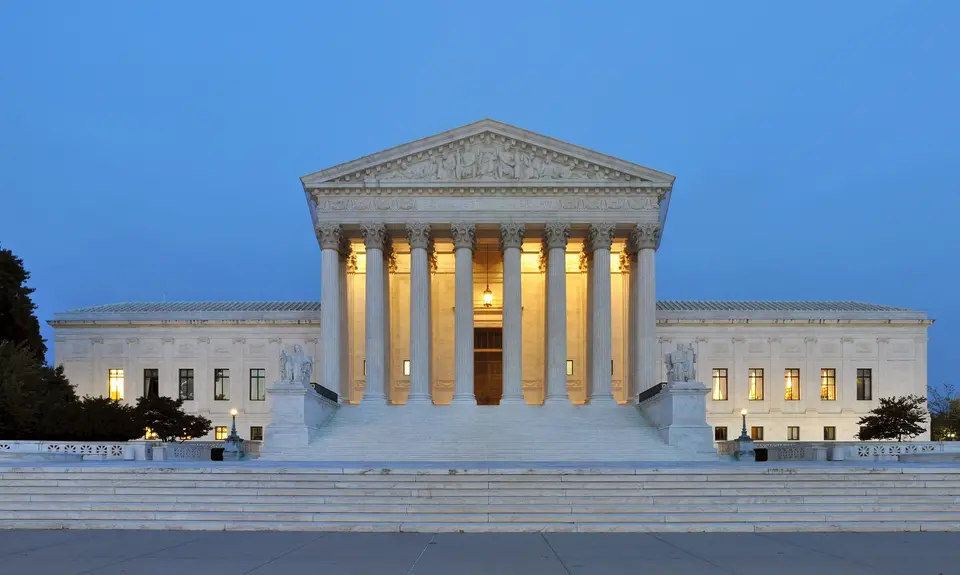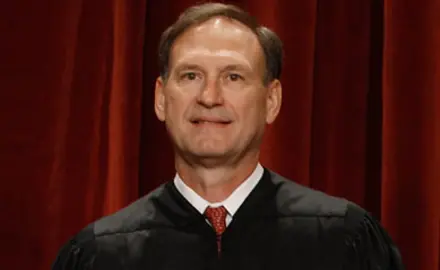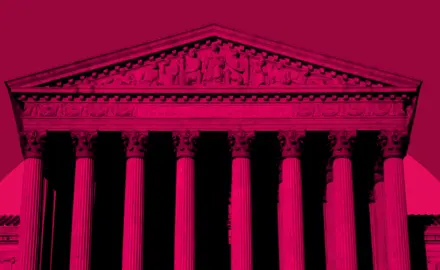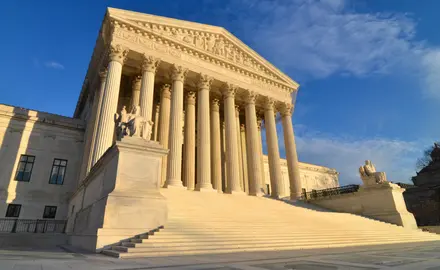On Thursday June 27, the Supreme Court issued two divided rulings in which right-wing justices in the majority seriously weakened the ability of federal agencies to protect our health and safety and to safeguard consumer rights and anti-fraud protections. The decisions were in Ohio v Environmental Protection Agency and SEC v Jarkesy. More rulings from the Court on authority of administrative agencies are expected this term.
What happened in the environmental case about health and safety?
It has long been recognized that air can and does carry pollution across state borders. As part of the Clean Air Act, therefore, Congress required that states submit State Implementation Plans (SIPs) to implement their obligations under the law that comply with the law’s “Good Neighbor Provision.” That legislation mandates that each state’s SIP prohibit emissions that would “contribute significantly to nonattainment in, or interference with maintenance by, any other State.” If an SIP fails to meet this requirement, the Environmental Protection Agency (EPA) is authorized to issue a Federal Implementation Plan (FIP) for the noncompliant state.
In 2022, the EPA announced its intention to disapprove SIPs by a number of states because of the dangerous ozone emissions that threatened harm in neighboring states. After receiving comments from industry and the public, the EPA disapproved the SIPs and announced an FIP to produce compliance with the Good Neighbor Plan. A number of states challenged the EPA’s actions in the DC Circuit and asked the court to stay the FIP while the case went forward. The DC Circuit declined the request, and the states sought a stay from the Supreme Court as the case was pending.
What did the Supreme Court majority do and why was it harmful?
In an opinion by Justice Neil Gorsuch, joined by Trump justice Brett Kavanaugh and by Chief Justice Roberts along with Justices Clarence Thomas, and Samuel Alito, a 5-4 majority granted the states’ request and stopped any EPA implementation of the Good Neighbor Policy until the lawsuit concludes. Gorsuch maintained that the states were likely to prevail on their claim that the EPA actions were “arbitrary and capricious.” He maintained that the EPA’s proposed actions were not “reasonably explained” and the agency had not addressed the concern that a number of states might drop out of the plan and make it difficult to implement.
Justice Amy Coney Barrett filed a strong dissent, which was joined by Justices Sonia Sotomayor, Elena Kagan, and Ketanji Brown Jackson. She criticized the majority for enjoining the enforcement of a “major [EPA] rule based on an underdeveloped theory that is unlikely to succeed on the merits.” She noted that the majority was again using its “shadow docket” to grant “emergency relief in a fact-intensive and highly technical case without fully engaging with both the relevant law and the voluminous record.” The majority’s theory that the EPA had not sufficiently explained its actions, she went on, contradicts “contrary record evidence.” After carefully explaining the problems in the majority’s opinion, she concluded that the result of the Court’s injunction “leaves large swaths of upwind States free to keep contributing to their downwind neighbors’ ozone problems” for at least “the next several years” while the case goes forward.
Environmental groups have been even more critical. As Earthjustice’s Senior Vice President Sam Sankar stated, the Court has now “abandoned any pretense of neutrality” in cases concerning environmental protection and has put “thousands of lives at risk.”
What happened in the case about consumer fraud?
As part of its regular activity to enforce congressional laws, the Securities and Exchange Commission (SEC) brought a civil penalty proceeding against George Jarkesy, Jr., for misleading investors and fraud in marketing hedge funds. After a full trial before an administrative law judge, the SEC found him guilty and ordered him to pay a civil penalty of $300,000 and to disgorge over $680,000 in illicit gains.
Jarkesy claimed, however, that he was entitled to a trial by jury in the case, even though it was brought by the SEC, not a victim, to enforce statutory penalties. A court of appeals agreed with him, and the SEC took the case to the Supreme Court.
What did the right-wing majority do and why is it harmful?
In his 6-3 opinion joined by Justice Alito, Justice Thomas, and the three Trump justices, Chief Justice Roberts affirmed the court of appeals decision and effectively vacated the SEC decision, requiring that a new case be brought against Jarkesy before a jury. Although he conceded that the SEC was seeking to enforce a legislative provision that specifically authorized such agency enforcement, Roberts maintained that when the agency seeks civil penalties against someone for securities fraud, the individual is entitled to a jury trial under the Seventh Amendment and that Congress could not effectively take that right away through its laws granting civil penalty authority to the SEC. The majority did not reach other issues, such as whether Congress violated the nondelegation doctrine, but Roberts did maintain that Congress had improperly “concentrate[d] the roles of prosecutor, judge and jury in the hands of the executive Branch,” violating the “separation of powers that the Constitution demands.”
Justice Sotomayor strongly dissented on behalf of herself and Justices Kagan and Jackson. She explained that under past precedent, the Court had “blessed” Congress’s practice of enacting civil penalties like those at issue here to be enforced through administrative proceedings, not a jury trial. Indeed, she went on, it was the Court majority that was engaged in a “power grab” that violated the separation of powers and disregarded past precedent. As she wrote, the majority’s ruling means that “the constitutionality of hundreds of statutes” granting such authority to agencies “may now be in peril,” and “dozens of agencies could be stripped of their power to enforce laws enacted by Congress.”
The future will reveal whether the majority’s decision will truly produce such devastating and chaotic consequences. There is clearly no question that the majority’s ruling will harm the ability of the SEC and other agencies to enforce laws as provided by Congress and help protect the public. The ruling also emphasizes the importance of helping ensure that fair-minded justices are placed on the Court, an issue that should be paramount in November’s elections.



